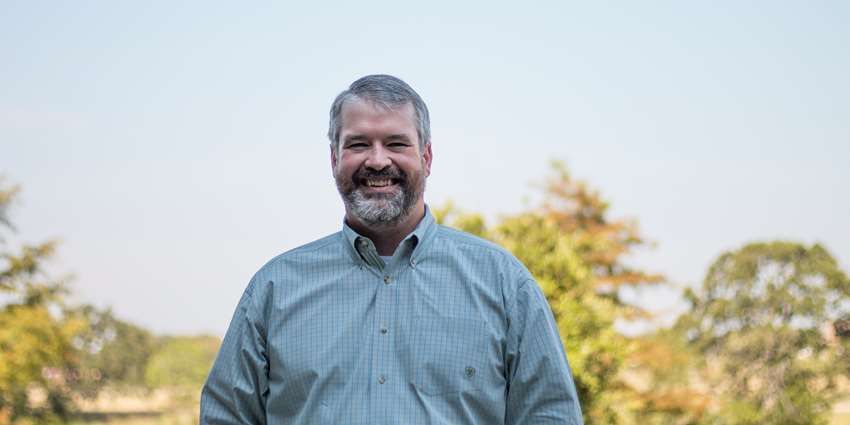Researching water quality does not only include examining water. Ed Rhodes, research associate for Texas Water Resources Institute, studies land cover and land use as it relates to water quality.
Rhodes’ interest in land management began during his studies to receive his bachelor’s degree from Texas A&M University and his master’s from Oregon State University, both in rangeland ecology and management.
Growing up Rhodes had an interest in photography, and while at Oregon State, he was able to explore that passion more. Rhodes said he took a dark room class to learn how to develop his own black and white film; the rest of his photography skills he learned on his own. Now, wherever he travels he takes landscape photographs and has a vast and unique collection from all over the world.
“Being in the kind of work that I have done, I get to go to remote areas to do fieldwork, and that gives me the chance to take really nice pictures,” Rhodes said.
Since starting at the institute in July 2017, Rhodes has been involved in Geographic Information System (GIS) mapping and fieldwork for most of the institute’s ongoing projects including the Copano Bay Watershed project and the Big Elm Creek Quality project.
He said he is able to use GIS mapping to look at the different aspects of a certain area such as whether the land is farmland or rangeland or covered by water and he uses this information to solve land management problems. He said the mapping is done by adding together layers of the different land uses and other spatial information, such as infrastructure.
Rhodes said examples of management problems he looks to solve would be, “What kind of land uses exist further up the watershed from an impaired stream? Does the stream have mostly rural or urban influences? If it’s rural, could the impairment be from livestock that could easily be managed with rotational grazing, or is the watershed prime feral hog habitat? If the stream is urban, is there a wastewater facility nearby, or maybe dog parks near a stream?”
Before joining the institute, Rhodes worked as a research associate for Texas A&M AgriLife Research in Temple and College Station.
While working for AgriLife Research in Temple, Rhodes had the opportunity to take his knowledge and apply it in international settings. He was involved in projects in Mali and western Africa mapping waterholes to help with drought prediction.
Rhodes said looking at water from a different point of view puts a new and interesting twist on the research.
“I am still kind of a range nerd at heart, but I like looking at water issues from a land-based perspective,” he said. “A lot of pollutants in the water are running off from the land, so I think having a land management background is helpful.”
Rhodes said he looks forward to becoming more involved at TWRI and working to solve water quality issues across Texas.

